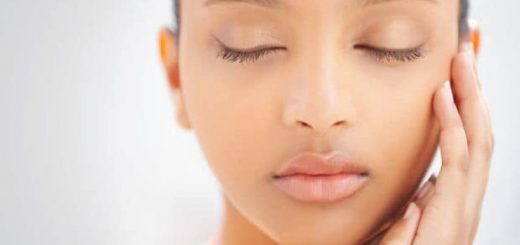Baby Skin Care Problems and Solutions in Winter
After the early months of babyhood have passed the skin of most children has a more than adequate layer of fatty ‘padding’ which gives it a beautiful smooth appearance, often described as having the quality of ‘purity’. All the functions are very active, and because the stratum corneum is functioning effectively the skin is very well hydrated. Indeed, by and large children skin is the healthiest we ever see.
Winter can be a very harsh time for an adult’s skin but for babies it can be extra harsh. Your baby’s skin is very sensitive and you will need to take extra care for your baby if you live in a cold environment. Winter time weather could cause irritation and your baby’s skin to dry out. It is easy for the moisture in their soft skin to disappear. Cold wind has a way of depleting skin of its moisture and elasticity. There are certain things that you will want to do to prevent this from happening.
Skin serves many purposes for the human body, including regulation of body temperature and protection from the elements. During the months prior to birth, the mother’s womb is performing these tasks for the baby. But at birth, the baby’s skin is preparing to take care of these important functions on its own. An infant is born with the skin fully developed as a barrier, or protection, from the outside world unless he is premature. However, some portions of the skin are not fully mature at birth. There are some simple things you can do to keep your child’s skin as healthy as possible.
Skin Problems in Winter:
Babies may be particularly prone to dry, irritated skin in winter. A number of factors play a part:
Central heating tends to make the atmosphere dry, and can dry out your baby’s skin. Your baby’s hands and face are particularly prone to getting cold. This can cause dryness and chapping. Wind, as well as cold, can cause chapping. Fortunately, simple measures can help to keep your child’s skin in tip-top condition:
- Don’t bath your baby more than every 2-3 days, and keep bathtime short.
- Don’t bundle your child up too warmly. This can make him sweat, which can irritate the skin.
- Remember that the difference between outside and inside temperature is greatest in winter. Lots of layers of thin clothes will allow you to adjust his clothing to keep him at the right temperature.
- Never wear wool next to the skin.
- Use lots of unscented emollients, applied frequently during the day, if your child has dry skin.
- Rinsing clothes thoroughly, and using a fabric conditioner designed for sensitive skin if you use one, are all the more important at this time of year, when your baby’s skin may be irritated by other things.
Baby Skin Care Tips for Winter:
- It’s advisable not to make your baby take bath daily as there is less humidity in air and daily exposure to water can make the skin more rough and dry. Even if you daily do it, restrict the bathing time to just 2 or 3 minutes.
- Use baby lotions containing greasier contents and massage it on their body immediately after bath and try to maintain a cozy temperature in your room, especially at that time.
- Don’t over dress your baby with woolens, as he/she may sweat internally, clogging their sweat pores and develops red rashes. Just try to cuddle them in soft fur like clothes for a soft touch to their skin.
- Your baby’s skin can be oily or dry. For dry skin, give a massage of warm unscented oils and for babies having oily skin, a moisturizer massage is sufficient as more oil will give rise to acne.
- Use mittens and head covers (hats, caps and hoods) for your child’s winter wear. These will help protect the delicate skin on hands, face and head. Consider using accessories, including stroller that has covers or blankets to shield against wind.
- During winter time, go for creams in place of baby powders in his or her diapers. Creams form a protective layer that protects against friction, moisture and discomfort.
- Babies are vulnerable to frostbite as they rapidly lose heat in cold temperature and their lips tend to dry badly developing into painful sores. To prevent it, always apply lip care jelly for babies within a period of 2 to 3 hours.
- Also apply a light coat of petroleum jelly inside baby’s nose, as harsh cold air can induce dryness in the nose and can result in bleeding at times. Check that your baby doesn’t rub his or her nose.
- Make your baby drink an average amount of lukewarm water to keep the skin hydrated from within.




